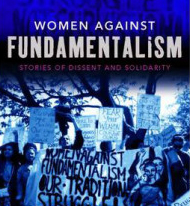As the struggles of the Arab Spring continue across the Middle East, one of the more intriguing effects of Egypt’s revolution has been the reconciliation between Fatah and Hamas in the Palestinian territories.
Following the takeover of Gaza by Hamas in 2007, the project to isolate and besiege the area, agreed between Israel and the US, was carried out with the help of Hosni Mubarak’s regime in Egypt. The Palestinian Authority under Fatah in the West Bank are the rivals and antagonists of Hamas, and were complicit in the campaign against it, though also denouncing the siege of Gaza. The peace treaty between Israel and Egypt, dating back to the Camp David accord of 1978, had, in effect, neutralised the military might of Egypt in confronting Israel, and allowed the latter a free hand in its aggressive campaigns in Lebanon, the occupied Palestinian territories and, most notably, in the war on Gaza in 2008-9.
While it had not abrogated the peace accord with Israel, the transitional Egyptian government, conscious of the popular anger that dislodged the old regime, could no longer sustain the siege of Gaza, to the outrage of Arab opinion and general humanitarian sentiment. Fatah, in turn, stood indicted for its subordination to the exigencies of Israeli security, with no payoff in progress toward the lifting of the repressive controls of occupation, let alone serious steps to statehood. This, in turn, had been one of the main springs of Hamas support in Palestinian opinion. Being an offshoot from the Muslim Brotherhood, the solid part of its constituency is Islamic, but it also enjoyed the support of many non-religious elements attracted by its steadfast resistance to the occupation, in contrast to what was seen as the complicity of the Palestinian Authority under Fatah. So, what are the religious elements of Hamas?
Like other Islamic movements in the region, Hamas buttressed its support with extensive social welfare services under conditions of widespread poverty. It also benefitted from the general ideological climate, where nationalism and anti-imperialism were increasingly expressed in religious idioms, a pattern now refreshingly broken in the recent manifestations of youth proclaiming slogans of liberty and economic reform. The regime it established in Gaza can be described as one of communal authoritarianism: the enforcement of religious moral and ritual disciplines, especially with regard to women, family and sexuality: segregation of the sexes,imposition of hijab and Sharia regulation of family laws, though not the Qur’anic penal prescriptions. Hamas has been a beneficiary of Iranian aid and support, and as such has incurred the displeasure of Saudi-affiliated agencies and donors, in spite of its conformity to the Sunni orthodoxy favoured by those quarters.
The reconciliation is a positive step for the Palestinians. Regardless of what one thinks of Hamas, it does represent an important constituency and should be included in any settlement. It will also go some way to remedying the legitimacy gap of the Palestinian Authority, and draw away some of the “steadfastness” support for Hamas. But that is only a small step to a just settlement, blocked primarily by US-backed Israeli intransigence.

